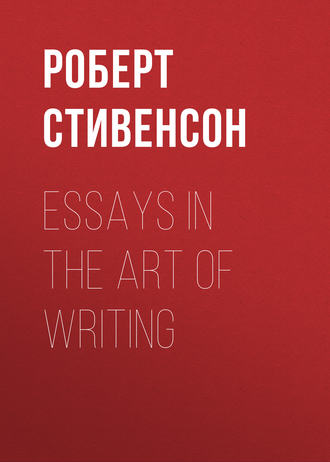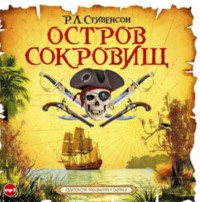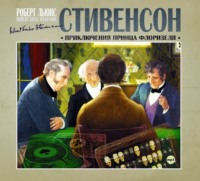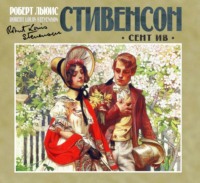 полная версия
полная версияEssays in the Art of Writing
This odd suicide of one branch of the realists may serve to remind us of the fact which underlies a very dusty conflict of the critics. All representative art, which can be said to live, is both realistic and ideal; and the realism about which we quarrel is a matter purely of externals. It is no especial cultus of nature and veracity, but a mere whim of veering fashion, that has made us turn our back upon the larger, more various, and more romantic art of yore. A photographic exactitude in dialogue is now the exclusive fashion; but even in the ablest hands it tells us no more – I think it even tells us less – than Molière, wielding his artificial medium, has told to us and to all time of Alceste or Orgon, Dorine or Chrysale. The historical novel is forgotten. Yet truth to the conditions of man’s nature and the conditions of man’s life, the truth of literary art, is free of the ages. It may be told us in a carpet comedy, in a novel of adventure, or a fairy tale. The scene may be pitched in London, on the sea-coast of Bohemia, or away on the mountains of Beulah. And by an odd and luminous accident, if there is any page of literature calculated to awake the envy of M. Zola, it must be that Troilus and Cressida which Shakespeare, in a spasm of unmanly anger with the world, grafted on the heroic story of the siege of Troy.
This question of realism, let it then be clearly understood, regards not in the least degree the fundamental truth, but only the technical method, of a work of art. Be as ideal or as abstract as you please, you will be none the less veracious; but if you be weak, you run the risk of being tedious and inexpressive; and if you be very strong and honest, you may chance upon a masterpiece.
A work of art is first cloudily conceived in the mind; during the period of gestation it stands more clearly forward from these swaddling mists, puts on expressive lineaments, and becomes at length that most faultless, but also, alas! that incommunicable product of the human mind, a perfected design. On the approach to execution all is changed. The artist must now step down, don his working clothes, and become the artisan. He now resolutely commits his airy conception, his delicate Ariel, to the touch of matter; he must decide, almost in a breath, the scale, the style, the spirit, and the particularity of execution of his whole design.
The engendering idea of some works is stylistic; a technical preoccupation stands them instead of some robuster principle of life. And with these the execution is but play; for the stylistic problem is resolved beforehand, and all large originality of treatment wilfully foregone. Such are the verses, intricately designed, which we have learnt to admire, with a certain smiling admiration, at the hands of Mr. Lang and Mr. Dobson; such, too, are those canvases where dexterity or even breadth of plastic style takes the place of pictorial nobility of design. So, it may be remarked, it was easier to begin to write Esmond than Vanity Fair, since, in the first, the style was dictated by the nature of the plan; and Thackeray, a man probably of some indolence of mind, enjoyed and got good profit of this economy of effort. But the case is exceptional. Usually in all works of art that have been conceived from within outwards, and generously nourished from the author’s mind, the moment in which he begins to execute is one of extreme perplexity and strain. Artists of indifferent energy and an imperfect devotion to their own ideal make this ungrateful effort once for all; and, having formed a style, adhere to it through life. But those of a higher order cannot rest content with a process which, as they continue to employ it, must infallibly degenerate towards the academic and the cut-and-dried. Every fresh work in which they embark is the signal for a fresh engagement of the whole forces of their mind; and the changing views which accompany the growth of their experience are marked by still more sweeping alterations in the manner of their art. So that criticism loves to dwell upon and distinguish the varying periods of a Raphael, a Shakespeare, or a Beethoven.
It is, then, first of all, at this initial and decisive moment when execution is begun, and thenceforth only in a less degree, that the ideal and the real do indeed, like good and evil angels, contend for the direction of the work. Marble, paint, and language, the pen, the needle, and the brush, all have their grossnesses, their ineffable impotences, their hours, if I may so express myself, of insubordination. It is the work and it is a great part of the delight of any artist to contend with these unruly tools, and now by brute energy, now by witty expedient, to drive and coax them to effect his will. Given these means, so laughably inadequate, and given the interest, the intensity, and the multiplicity of the actual sensation whose effect he is to render with their aid, the artist has one main and necessary resource which he must, in every case and upon any theory, employ. He must, that is, suppress much and omit more. He must omit what is tedious or irrelevant, and suppress what is tedious and necessary. But such facts as, in regard to the main design, subserve a variety of purposes, he will perforce and eagerly retain. And it is the mark of the very highest order of creative art to be woven exclusively of such. There, any fact that is registered is contrived a double or a treble debt to pay, and is at once an ornament in its place, and a pillar in the main design. Nothing would find room in such a picture that did not serve, at once, to complete the composition, to accentuate the scheme of colour, to distinguish the planes of distance, and to strike the note of the selected sentiment; nothing would be allowed in such a story that did not, at the same time, expedite the progress of the fable, build up the characters, and strike home the moral or the philosophical design. But this is unattainable. As a rule, so far from building the fabric of our works exclusively with these, we are thrown into a rapture if we think we can muster a dozen or a score of them, to be the plums of our confection. And hence, in order that the canvas may be filled or the story proceed from point to point, other details must be admitted. They must be admitted, alas! upon a doubtful title; many without marriage robes. Thus any work of art, as it proceeds towards completion, too often – I had almost written always – loses in force and poignancy of main design. Our little air is swamped and dwarfed among hardly relevant orchestration; our little passionate story drowns in a deep sea of descriptive eloquence or slipshod talk.
But again, we are rather more tempted to admit those particulars which we know we can describe; and hence those most of all which, having been described very often, have grown to be conventionally treated in the practice of our art. These we choose, as the mason chooses the acanthus to adorn his capital, because they come naturally to the accustomed hand. The old stock incidents and accessories, tricks of workmanship and schemes of composition (all being admirably good, or they would long have been forgotten) haunt and tempt our fancy, offer us ready-made but not perfectly appropriate solutions for any problem that arises, and wean us from the study of nature and the uncompromising practice of art. To struggle, to face nature, to find fresh solutions, and give expression to facts which have not yet been adequately or not yet elegantly expressed, is to run a little upon the danger of extreme self-love. Difficulty sets a high price upon achievement; and the artist may easily fall into the error of the French naturalists, and consider any fact as welcome to admission if it be the ground of brilliant handiwork; or, again, into the error of the modern landscape-painter, who is apt to think that difficulty overcome and science well displayed can take the place of what is, after all, the one excuse and breath of art – charm. A little further, and he will regard charm in the light of an unworthy sacrifice to prettiness, and the omission of a tedious passage as an infidelity to art.
We have now the matter of this difference before us. The idealist, his eye singly fixed upon the greater outlines, loves rather to fill up the interval with detail of the conventional order, briefly touched, soberly suppressed in tone, courting neglect. But the realist, with a fine intemperance, will not suffer the presence of anything so dead as a convention; he shall have all fiery, all hot-pressed from nature, all charactered and notable, seizing the eye. The style that befits either of these extremes, once chosen, brings with it its necessary disabilities and dangers. The immediate danger of the realist is to sacrifice the beauty and significance of the whole to local dexterity, or, in the insane pursuit of completion, to immolate his readers under facts; but he comes in the last resort, and as his energy declines, to discard all design, abjure all choice, and, with scientific thoroughness, steadily to communicate matter which is not worth learning. The danger of the idealist is, of course, to become merely null and lose all grip of fact, particularity, or passion.
We talk of bad and good. Everything, indeed, is good which is conceived with honesty and executed with communicative ardour. But though on neither side is dogmatism fitting, and though in every case the artist must decide for himself, and decide afresh and yet afresh for each succeeding work and new creation; yet one thing may be generally said, that we of the last quarter of the nineteenth century, breathing as we do the intellectual atmosphere of our age, are more apt to err upon the side of realism than to sin in quest of the ideal. Upon that theory it may be well to watch and correct our own decisions, always holding back the hand from the least appearance of irrelevant dexterity, and resolutely fixed to begin no work that is not philosophical, passionate, dignified, happily mirthful, or, at the last and least, romantic in design.
MY FIRST BOOK: ‘TREASURE ISLAND’ 16
It was far indeed from being my first book, for I am not a novelist alone. But I am well aware that my paymaster, the Great Public, regards what else I have written with indifference, if not aversion; if it call upon me at all, it calls on me in the familiar and indelible character; and when I am asked to talk of my first book, no question in the world but what is meant is my first novel.
Sooner or later, somehow, anyhow, I was bound to write a novel. It seems vain to ask why. Men are born with various manias: from my earliest childhood, it was mine to make a plaything of imaginary series of events; and as soon as I was able to write, I became a good friend to the paper-makers. Reams upon reams must have gone to the making of ‘Rathillet,’ ‘The Pentland Rising,’ 17 ‘The King’s Pardon’ (otherwise ‘Park Whitehead’), ‘Edward Daven,’ ‘A Country Dance,’ and ‘A Vendetta in the West’; and it is consolatory to remember that these reams are now all ashes, and have been received again into the soil. I have named but a few of my ill-fated efforts, only such indeed as came to a fair bulk ere they were desisted from; and even so they cover a long vista of years. ‘Rathillet’ was attempted before fifteen, ‘The Vendetta’ at twenty-nine, and the succession of defeats lasted unbroken till I was thirty-one. By that time, I had written little books and little essays and short stories; and had got patted on the back and paid for them – though not enough to live upon. I had quite a reputation, I was the successful man; I passed my days in toil, the futility of which would sometimes make my cheek to burn – that I should spend a man’s energy upon this business, and yet could not earn a livelihood: and still there shone ahead of me an unattained ideal: although I had attempted the thing with vigour not less than ten or twelve times, I had not yet written a novel. All – all my pretty ones – had gone for a little, and then stopped inexorably like a schoolboy’s watch. I might be compared to a cricketer of many years’ standing who should never have made a run. Anybody can write a short story – a bad one, I mean – who has industry and paper and time enough; but not every one may hope to write even a bad novel. It is the length that kills.
The accepted novelist may take his novel up and put it down, spend days upon it in vain, and write not any more than he makes haste to blot. Not so the beginner. Human nature has certain rights; instinct – the instinct of self-preservation – forbids that any man (cheered and supported by the consciousness of no previous victory) should endure the miseries of unsuccessful literary toil beyond a period to be measured in weeks. There must be something for hope to feed upon. The beginner must have a slant of wind, a lucky vein must be running, he must be in one of those hours when the words come and the phrases balance of themselves —even to begin. And having begun, what a dread looking forward is that until the book shall be accomplished! For so long a time, the slant is to continue unchanged, the vein to keep running, for so long a time you must keep at command the same quality of style: for so long a time your puppets are to be always vital, always consistent, always vigorous! I remember I used to look, in those days, upon every three-volume novel with a sort of veneration, as a feat – not possibly of literature – but at least of physical and moral endurance and the courage of Ajax.
In the fated year I came to live with my father and mother at Kinnaird, above Pitlochry. Then I walked on the red moors and by the side of the golden burn; the rude, pure air of our mountains inspirited, if it did not inspire us, and my wife and I projected a joint volume of logic stories, for which she wrote ‘The Shadow on the Bed,’ and I turned out ‘Thrawn Janet,’ and a first draft of ‘The Merry Men.’ I love my native air, but it does not love me; and the end of this delightful period was a cold, a fly-blister, and a migration by Strathairdle and Glenshee to the Castleton of Braemar.
There it blew a good deal and rained in a proportion; my native air was more unkind than man’s ingratitude, and I must consent to pass a good deal of my time between four walls in a house lugubriously known as the Late Miss McGregor’s Cottage. And now admire the finger of predestination. There was a schoolboy in the Late Miss McGregor’s Cottage, home from the holidays, and much in want of ‘something craggy to break his mind upon.’ He had no thought of literature; it was the art of Raphael that received his fleeting suffrages; and with the aid of pen and ink and a shilling box of water colours, he had soon turned one of the rooms into a picture gallery. My more immediate duty towards the gallery was to be showman; but I would sometimes unbend a little, join the artist (so to speak) at the easel, and pass the afternoon with him in a generous emulation, making coloured drawings. On one of these occasions, I made the map of an island; it was elaborately and (I thought) beautifully coloured; the shape of it took my fancy beyond expression; it contained harbours that pleased me like sonnets; and with the unconsciousness of the predestined, I ticketed my performance ‘Treasure Island.’ I am told there are people who do not care for maps, and find it hard to believe. The names, the shapes of the woodlands, the courses of the roads and rivers, the prehistoric footsteps of man still distinctly traceable up hill and down dale, the mills and the ruins, the ponds and the ferries, perhaps the Standing Stone or the Druidic Circle on the heath; here is an inexhaustible fund of interest for any man with eyes to see or twopence-worth of imagination to understand with! No child but must remember laying his head in the grass, staring into the infinitesimal forest and seeing it grow populous with fairy armies.
Somewhat in this way, as I paused upon my map of ‘Treasure Island,’ the future character of the book began to appear there visibly among imaginary woods; and their brown faces and bright weapons peeped out upon me from unexpected quarters, as they passed to and fro, fighting and hunting treasure, on these few square inches of a flat projection. The next thing I knew I had some papers before me and was writing out a list of chapters. How often have I done so, and the thing gone no further! But there seemed elements of success about this enterprise. It was to be a story for boys; no need of psychology or fine writing; and I had a boy at hand to be a touchstone. Women were excluded. I was unable to handle a brig (which the Hispaniola should have been), but I thought I could make shift to sail her as a schooner without public shame. And then I had an idea for John Silver from which I promised myself funds of entertainment; to take an admired friend of mine (whom the reader very likely knows and admires as much as I do), to deprive him of all his finer qualities and higher graces of temperament, to leave him with nothing but his strength, his courage, his quickness, and his magnificent geniality, and to try to express these in terms of the culture of a raw tarpaulin. Such psychical surgery is, I think, a common way of ‘making character’; perhaps it is, indeed, the only way. We can put in the quaint figure that spoke a hundred words with us yesterday by the wayside; but do we know him? Our friend, with his infinite variety and flexibility, we know – but can we put him in? Upon the first, we must engraft secondary and imaginary qualities, possibly all wrong; from the second, knife in hand, we must cut away and deduct the needless arborescence of his nature, but the trunk and the few branches that remain we may at least be fairly sure of.
On a chill September morning, by the cheek of a brisk fire, and the rain drumming on the window, I began The Sea Cook, for that was the original title. I have begun (and finished) a number of other books, but I cannot remember to have sat down to one of them with more complacency. It is not to be wondered at, for stolen waters are proverbially sweet. I am now upon a painful chapter. No doubt the parrot once belonged to Robinson Crusoe. No doubt the skeleton is conveyed from Poe. I think little of these, they are trifles and details; and no man can hope to have a monopoly of skeletons or make a corner in talking birds. The stockade, I am told, is from Masterman Ready. It may be, I care not a jot. These useful writers had fulfilled the poet’s saying: departing, they had left behind them Footprints on the sands of time, Footprints which perhaps another – and I was the other! It is my debt to Washington Irving that exercises my conscience, and justly so, for I believe plagiarism was rarely carried farther. I chanced to pick up the Tales of a Traveller some years ago with a view to an anthology of prose narrative, and the book flew up and struck me: Billy Bones, his chest, the company in the parlour, the whole inner spirit, and a good deal of the material detail of my first chapters – all were there, all were the property of Washington Irving. But I had no guess of it then as I sat writing by the fireside, in what seemed the spring-tides of a somewhat pedestrian inspiration; nor yet day by day, after lunch, as I read aloud my morning’s work to the family. It seemed to me original as sin; it seemed to belong to me like my right eye. I had counted on one boy, I found I had two in my audience. My father caught fire at once with all the romance and childishness of his original nature. His own stories, that every night of his life he put himself to sleep with, dealt perpetually with ships, roadside inns, robbers, old sailors, and commercial travellers before the era of steam. He never finished one of these romances; the lucky man did not require to! But in Treasure Island he recognised something kindred to his own imagination; it was his kind of picturesque; and he not only heard with delight the daily chapter, but set himself acting to collaborate. When the time came for Billy Bones’s chest to be ransacked, he must have passed the better part of a day preparing, on the back of a legal envelope, an inventory of its contents, which I exactly followed; and the name of ‘Flint’s old ship’ – the Walrus– was given at his particular request. And now who should come dropping in, ex machinâ, but Dr. Japp, like the disguised prince who is to bring down the curtain upon peace and happiness in the last act; for he carried in his pocket, not a horn or a talisman, but a publisher – had, in fact, been charged by my old friend, Mr. Henderson, to unearth new writers for Young Folks. Even the ruthlessness of a united family recoiled before the extreme measure of inflicting on our guest the mutilated members of The Sea Cook; at the same time, we would by no means stop our readings; and accordingly the tale was begun again at the beginning, and solemnly re-delivered for the benefit of Dr. Japp. From that moment on, I have thought highly of his critical faculty; for when he left us, he carried away the manuscript in his portmanteau.
Here, then, was everything to keep me up, sympathy, help, and now a positive engagement. I had chosen besides a very easy style. Compare it with the almost contemporary ‘Merry Men’, one reader may prefer the one style, one the other – ’tis an affair of character, perhaps of mood; but no expert can fail to see that the one is much more difficult, and the other much easier to maintain. It seems as though a full-grown experienced man of letters might engage to turn out Treasure Island at so many pages a day, and keep his pipe alight. But alas! this was not my case. Fifteen days I stuck to it, and turned out fifteen chapters; and then, in the early paragraphs of the sixteenth, ignominiously lost hold. My mouth was empty; there was not one word of Treasure Island in my bosom; and here were the proofs of the beginning already waiting me at the ‘Hand and Spear’! Then I corrected them, living for the most part alone, walking on the heath at Weybridge in dewy autumn mornings, a good deal pleased with what I had done, and more appalled than I can depict to you in words at what remained for me to do. I was thirty-one; I was the head of a family; I had lost my health; I had never yet paid my way, never yet made £200 a year; my father had quite recently bought back and cancelled a book that was judged a failure: was this to be another and last fiasco? I was indeed very close on despair; but I shut my mouth hard, and during the journey to Davos, where I was to pass the winter, had the resolution to think of other things and bury myself in the novels of M. de Boisgobey. Arrived at my destination, down I sat one morning to the unfinished tale; and behold! it flowed from me like small talk; and in a second tide of delighted industry, and again at a rate of a chapter a day, I finished Treasure Island. It had to be transcribed almost exactly; my wife was ill; the schoolboy remained alone of the faithful; and John Addington Symonds (to whom I timidly mentioned what I was engaged on) looked on me askance. He was at that time very eager I should write on the characters of Theophrastus: so far out may be the judgments of the wisest men. But Symonds (to be sure) was scarce the confidant to go to for sympathy on a boy’s story. He was large-minded; ‘a full man,’ if there was one; but the very name of my enterprise would suggest to him only capitulations of sincerity and solecisms of style. Well! he was not far wrong.
Treasure Island– it was Mr. Henderson who deleted the first title, The Sea Cook– appeared duly in the story paper, where it figured in the ignoble midst, without woodcuts, and attracted not the least attention. I did not care. I liked the tale myself, for much the same reason as my father liked the beginning: it was my kind of picturesque. I was not a little proud of John Silver, also; and to this day rather admire that smooth and formidable adventurer. What was infinitely more exhilarating, I had passed a landmark; I had finished a tale, and written ‘The End’ upon my manuscript, as I had not done since ‘The Pentland Rising,’ when I was a boy of sixteen not yet at college. In truth it was so by a set of lucky accidents; had not Dr. Japp come on his visit, had not the tale flowed from me with singular case, it must have been laid aside like its predecessors, and found a circuitous and unlamented way to the fire. Purists may suggest it would have been better so. I am not of that mind. The tale seems to have given much pleasure, and it brought (or, was the means of bringing) fire and food and wine to a deserving family in which I took an interest. I need scarcely say I mean my own.






